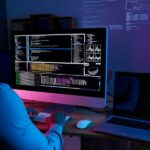Introduction learn to sit back and observe. not everything need – tymoff
What is Observational Learning?
Observational learning, also known as social learning theory, proposes that people can learn new behaviors and information by watching others. This section would discuss the basics of observational learning, its pioneers, and how it’s relevant in daily life.
The Benefits of Being Observant
Being learn to sit back and observe. not everything need – tymoff is not just about noticing what’s around you but understanding the deeper implications of what is noticed. This part would explore how enhanced observation skills can lead to better decision-making, increased empathy, and more effective communication.
Observational Skills in Personal Life
Enhancing Personal Relationships Through Observation Observing the nuances in the behavior of others can help us better understand their needs and desires, thereby strengthening our personal relationships. This section would provide strategies for using observation to enhance interactions and connectivity with loved ones.
Developing Patience and Understanding
Patience is a virtue that can be developed through the practice of sitting back and observing rather than reacting. This segment would discuss how learn to sit back and observe. not everything need – tymoff leads to a deeper understanding of situations, thus fostering patience.
Cultivating Empathy by Observing Others
Empathy grows from understanding the emotional states of others. Observational skills allow us to perceive and interpret the emotions of others, enhancing our empathetic responses. This section would cover methods to improve empathy through observation.
Observational Skills in Professional Settings
How Observation Can Enhance Workplace Dynamics In a professional setting, learn to sit back and observe. not everything need – tymoff can lead to a better understanding of workplace dynamics, which can improve team cohesion and efficiency. This part would detail how observational skills can be applied in the workplace.
The Role of Observation in Leadership
Good leaders are often great observers. This section would discuss how leaders can use observation to make better decisions, understand team needs, and foster a positive work environment.
Using Observation for Career Advancement
Observation can help individuals identify opportunities for career advancement. This segment would provide examples of how keen learn to sit back and observe. not everything need – tymoff skills have helped others climb the professional ladder.
The Art of Not Reacting Immediately
Understanding the Value of Pausing There is significant value in learning to pause and think before reacting. This section would explore the benefits of taking a moment to assess situations before responding.
Techniques for Controlling Impulsive Reactions
Impulsiveness can be curtailed through specific techniques that encourage thoughtful response rather than immediate reaction. This part of the article will provide practical tips and exercises to help readers develop the habit of pausing and reflecting before acting, thus making more calculated and effective decisions.
Case Studies: Benefits of Strategic Pausing in Decision Making Real-world examples and case studies will be shared to illustrate how individuals and companies have benefited from a strategic pause in various decision-making processes. These stories will demonstrate the tangible advantages of thoughtful learn to sit back and observe. not everything need – tymoff over hasty reactions in achieving successful outcomes.
Cultivating Mindfulness Through Observation
Practical Exercises to Enhance Mindfulness
Mindfulness and learn to sit back and observe. not everything need – tymoff go hand in hand. This section will introduce simple yet effective mindfulness exercises that can be practiced to enhance one’s observational skills. Techniques such as mindful walking, journaling, and focused listening will be discussed to help readers integrate mindfulness into their daily routines.
The Intersection of Mindfulness and Non-reactive Behavior
This segment will delve into how mindfulness fosters non-reactive behavior, thereby enhancing one’s capacity to learn to sit back and observe. not everything need – tymoff and respond appropriately to life’s situations. It will explain the psychological mechanisms behind mindfulness that help in reducing automatic reactions and increasing deliberate actions.
The Impact of Observation on Mental Health
How Observing Can Reduce Stress and Anxiety Observation can play a crucial role in managing stress and anxiety. By focusing on the present and absorbing the details around us, we can shift our perspective from worrisome thoughts to a more grounded, calmer state of mind. This section will explore the benefits of observation as a form of stress relief and its impact on overall mental health.
Observation as a Tool for Mental Clarity Using observational skills can lead to greater mental clarity by helping to declutter the mind and focus on what truly matters. Techniques for practicing effective observation that leads to clearer thinking will be provided, offering readers practical ways to enhance their mental clarity.
Learn to Sit Back and Observe: Not Everything Needs Immediate Action
Cultivating a Habit of Observation
Building a consistent habit oflearn to sit back and observe. not everything need – tymoff can profoundly affect how we interact with the world. This section will offer strategies to help readers develop regular observational practices that can be integrated into everyday life, emphasizing the importance of routine in building this skill.
How to Integrate Observation into Daily Life
Practical advice on integrating observation into daily routines will be discussed, providing readers with methods to enhance their awareness and responsiveness through simple changes in their behavior and mindset.
Advanced Observational Techniques
Learning from the Observations: Extracting Lessons Advanced techniques in observation involve not just noticing details but also drawing lessons from them. This section will teach readers how to analyze and learn from their observations, turning everyday experiences into opportunities for personal growth and learning.
Observing Without Judgment: The Ultimate Skill
Observing without judgment is a key skill in developing true observational abilities. This part will explore techniques to observe neutrally, without letting personal biases or previous experiences color the interpretation of new information.
Technology and Observation
How Digital Tools Can Aid in Observational Skills
In the digital age, various tools and apps can enhance our ability to observe and record information. This section will discuss how technology can be used to support observational practices, including apps that help with mindfulness, recording observations, and even analyzing them.
The Pros and Cons of Technology in Enhancing Observation
While technology offers tools to aid observation, it also presents challenges that can hinder our ability to learn to sit back and observe. not everything need – tymoff deeply. This segment will address the double-edged sword of technology in observation, discussing both its benefits and its potential drawbacks.
Observation in Educational Settings
How Observation Enhances Learning Experiences Observation skills are crucial in educational contexts. This section will cover how students and educators can benefit from enhanced observation, leading to more effective learning and teaching strategies.
Teachers’ Role in Cultivating Observational Skills The role of educators in fostering observational skills among students will be explored, with emphasis on teaching techniques that encourage active and mindful observation in the classroom.
Observing Nature
Learning from the Natural World Nature offers boundless opportunities for observation. This part will delve into how engaging with nature can enhance our learn to sit back and observe. not everything need – tymoff skills and what lessons we can learn from the natural world.
How Nature Observation Can Improve Well-being The benefits of observing nature on mental and physical well-being will be discussed, highlighting how such practices can lead to reduced stress, improved mood, and overall better health.
FAQs About Observational Skills
This section will answer frequently asked questions about developing and utilizing observational skills, providing readers with a deeper understanding and practical advice on how to improve their ability to observe.
Conclusion: Embracing Observation for Personal Growth
The conclusion will summarize the key points discussed throughout the article, emphasizing the transformative power of observational skills in personal and professional growth. It will encourage readers to continue practicing and refining their observation skills as a means to a more mindful, patient, and insightful life.







